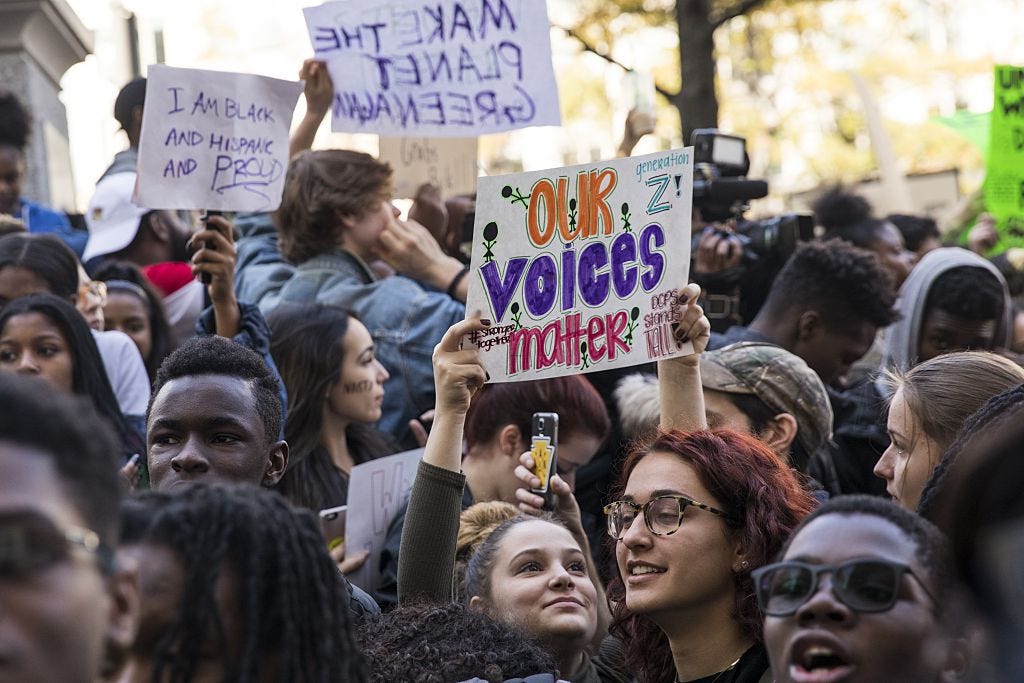The Psychic Damage of Being Young in America on the Eve of an Election
A 25-year-old’s reflection on America’s political insanities – the horrors, and that they keep happening again and again.

We didn't start the fire
It was always burning, since the world's been turning
We didn't start the fire
No, we didn't light it, but we tried to fight it
Billy Joel’s well-known, albeit sometimes-mocked, earworm track came out in 1989. The song, if nothing else, conveys the snowballing insanity felt in experiencing event after event piling upon each other. The inextinguishable fire – especially of man-made disaster – burned long before the listeners’ time and, accordingly, would continue sans any drastic change. Fast forward 40 years, and the fire still burns. Whether it’s all categorically worse or not is theoretical to an extent (though problems like climate change and man-made disaster are empirically worse); generational bias naturally brings us to view today’s problems as uniquely distressing relative to other times.
It’s not necessarily that the youth of today confront a uniquely marred system that generations past had not. What is striking is the range of those problems that evidently have not been addressed despite their pre-existing presence, and in fact, have been made worse. That can be an issue come election time, as young people become more aware of how worse everything seems to get. While youth turnout in presidential elections has actually been on an upward swing – it rose from 44% in 2016 to 55% in 2020 – one may wonder how much higher it would be if their skepticism toward the system wasn’t continually affirmed.
Meanwhile there’s this sense of incuriousness toward how much cumulative psychic damage has been inflicted upon the youth of America’s past, and how that subsequently leads to an embedded social cynicism as those youths grew into the torchbearers of today. All for it to continue, leaving little path for wholly eliminating those social problems.
The Trump Years
I'm 25 years old, and over the past decade, my friends and I have scrolled through a catalog of emotions. There’s the baseline: school shooting drills becoming as routine as pledging allegiance in the morning. Learning about coral reefs and hurricanes, only to find ourselves a handful of years later witnessing what we were warned would only happen beyond our lifetimes, if we weren’t careful.
Then the further ascendancy of those same forces beckoning the worsening of those baselines. I recall an ambivalence at best in my midwestern high school halls the day Donald Trump was elected. The days and months ahead would challenge and crystallize many of my classmates’ idiosyncratic views and concerns – including my own. Anger and frustration channeled into “resistance,” recognizably characterized by moments like the Women’s March the day after Trump was inaugurated.
The insanity of the Trump years – ones that would occupy a formative part of Gen Z’s lifetimes thus far – was just part of it. It would be foolhardy to try listing all the corruption, racism, and stupidity that were to come. It’s worth considering that this year’s first-time 18-year-old voters have spent half their lives in a society in which one of two major political parties is domineered by Trump. That is their sense of “normal” for the bounds of American politics – a reality and expectation their brains have literally developed and matured alongside.




